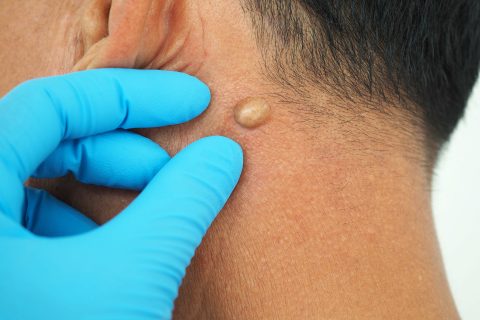Understanding your options for cyst removal in Glasgow is crucial if you’re dealing with these common but often troubling growths. This comprehensive guide covers everything from types of cysts to treatment options, helping you make informed decisions about your care and treatment plan.
Cyst Removal in Glasgow

Find Out More About Cyst Removal at Our Glasgow Clinic
What Are the Different Types of Cysts You Might Encounter?
Cysts come in several varieties, with sebaceous cyst and pilar cyst being among the most common. A cyst is a fluid-filled sac that can develop anywhere on the body, though they’re frequently found on the scalp and around hair follicles.
Each type of cyst has distinct characteristics. For example, an epidermoid cyst typically contains yellowish material, while a ganglion cyst is more commonly found near joints. A sebaceous cyst forms around oil-producing (sebaceous) glands and fills with a soft, yellowish substance.
Understanding which type of cyst you have is crucial for determining the best course of action for removal.
Why Might You Consider Cyst Excision at Our Minor Surgery Clinic?
While some cysts are harmless, others may become infected, inflame, or cause cosmetic concerns. A cyst may also grow larger over time, causing discomfort or affecting your daily activities. There are several benefits to removal:
- Cosmetic improvement: Cysts can be unsightly, especially if they are large or in a visible area.
- Pain relief: If a cyst is causing pain or discomfort, removing it can provide relief.
- Reduced risk of infection: Cysts can become infected, especially if they are irritated or damaged. Removing them can reduce the risk of infection.
What Treatment Options Are Available at Glasgow?
Glasgow clinics offer various treatment approaches, with surgical excision being the most common and effective method. Minor surgical procedures are carried out under local anaesthetic to ensure your comfort during the removal process. At Waverley Park we have over 20 years of experience providing minor surgery services.
-
I had an appointment with Dr Fraser today at the skin clinic. She was excellent and dealt with all my issues in one appointment with no need for any follow up. Lovely staff to welcome you in the door too. I will definitely go back for any future treatments if needed and thoroughly recommend Dr Fraser for her kindness too.
-
I went to to the doctor to have a small growth on my back checked. After being reassured it was bleeding because it was catching on my clothing, annoying not sinister, i was offered the opportunity to have it removed at the surgery. It was duly removed one week later in a painless procedure in a calm environment. Highly recommend.
-
I was referred to Waverley Park by my GP to address a cyst on my back and spot on my face. Dr Fraser evaluated both and treated the spot on my cheek, which resolved within a week. I returned to have the cyst surgically removed and was seen promptly. The procedure was quick and fairly painless and the staff were kind. Highly recommend Waverley Park and Dr Fraser for minor surgical procedures.
How Does the Initial Consultation Process Work?
During your initial consultation at our Glasgow clinic, a qualified doctor will carefully examine your cyst and discuss your concerns and expectations. This assessment helps determine the most appropriate treatment method.
The specialist will explain the procedure, possible side effects, and expected outcomes. They’ll also discuss the risk of scarring and provide information about aftercare following your cyst removal.
What Happens During the Surgical Procedure?
The actual cyst removal is performed under local anaesthesia to ensure your procedure is pain-free. The doctor makes a careful incision and removes the entire cyst, including its wall, to prevent recurrence.
The removed tissue is sent to our local pathology lab for confirmation of the diagnosis and we notify your GP of the results.
What Should You Expect During Recovery?
Following cyst removal surgery, you’ll receive detailed instructions on how to care for the area being treated. Recovery time varies depending on the type and size of the cyst removed. Multiple factors can work towards minimising any scarring, including proper aftercare and following your doctor’s instructions.
Is NHS Treatment Available for Cyst Removal?
While the NHS does provide cyst removal services in certain circumstances, there may be waiting times, especially if the cyst is considered a cosmetic concern rather than a medical necessity. Your GP can advise whether NHS treatment is appropriate for your situation.
What Are the Long-term Results of Professional Cyst Removal?
When performed properly, surgical removal makes it unlikely that the cyst will return. The procedure leaves a small scar that typically fades over time, though the extent of scarring depends on various factors including the size and location of the cyst.
Your surgeon will discuss potential outcomes during your consultation and can advise on techniques to minimize scarring.
Cyst Removal Cost
The fee for your initial consultation is £50. We are pleased to deduct this amount entirely from the cost of any subsequent procedures you choose to pursue.
Key Points to Remember:
- Professional diagnosis is essential to determine the type of cyst and appropriate treatment
- Surgical excision under local anaesthetic is the most effective removal method
- Never attempt to remove or squeeze a cyst at home
- Choose an experienced clinic with a strong track record in cyst removal
- Following aftercare instructions is crucial for optimal healing
- Most cyst removals are performed as minor surgical procedures
- Recovery time varies depending on the size and location of the cyst
- Professional removal significantly reduces the risk of cyst recurrence
